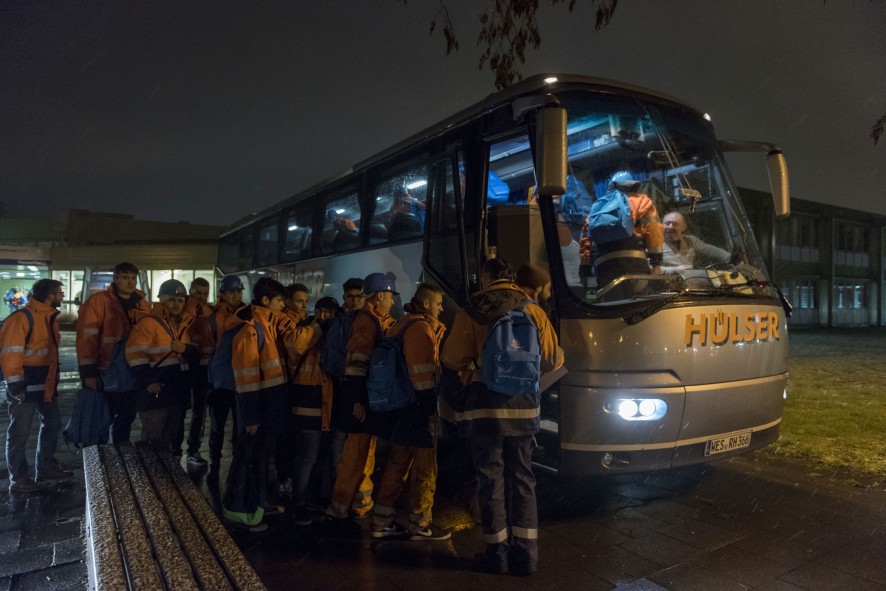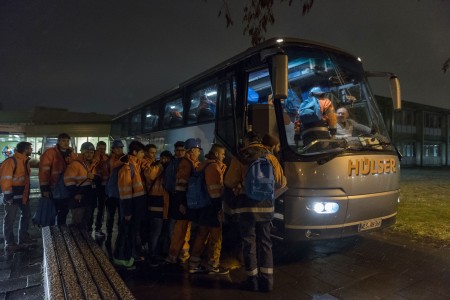Trade press, Daily press, 2016-02-15, 11:31 am
600 apprentices from thyssenkrupp’s steel division demonstrate in Brussels for the future of their jobs
On the way to Brussels to demonstrate for the future of their jobs

The future of the steel industry in Germany and Europe and tens of thousands of associated jobs is at stake: The sector is under massive threat from cheap Chinese imports. On top of this comes the planned tightening of the emissions trading system in Europe. These factors are jeopardizing the existence of European steel producers. To make this risk clear to policy-makers and the public, around 600 apprentices from thyssenkrupp’s steel division have taken part in a demonstration in Brussels. Under the banner “Young People March For Their Future!” over 350 apprentices from Duisburg alone descended on the Belgian capital. They were joined by board members and administrative staff from thyssenkrupp Steel Europe. Further steel apprentices from the company’s Dortmund and Bochum sites and from thyssenkrupp Rasselstein in Andernach also made their way to the home of the EU’s most important political institutions. Altogether over 5,000 European steel industry workers joined the march in Brussels. They are calling for fair trade, growth, and secure jobs in Europe and at the same time protesting against the dumping of Chinese steel on the European market and the granting of market economy status (MES) to China.
Among those accompanying the Duisburg apprentices was Andreas Goss, CEO of thyssenkrupp Steel Europe AG. “Young employees want good, fair, and skilled jobs. Europe’s steel producers offer tens of thousands such jobs, making a major contribution to the sustainability of our economic and social systems. These jobs must be protected so that we can offer young people a secure future,” said Goss at today’s march in Brussels. “Through this action with our apprentices we want to represent our common interests with a strong and unequivocal message.” The CEO of thyssenkrupp Steel Europe once again pointed out the huge impacts to the company. If the European emissions trading system is tightened as planned, Germany’s biggest steel producer thyssenkrupp Steel Europe alone would face extra costs, depending on scenario, of between 1.9 and 3 billion euros in the 2021 to 2030 trading period. At the rally organized by Eurofer, the European Steel Association, it was also made clear that as a result of Chinese steel imports significantly more CO2 is already getting into Europe than if steel were produced in accordance with European standards. “So we’re importing CO2 and exporting jobs,” said Goss.




